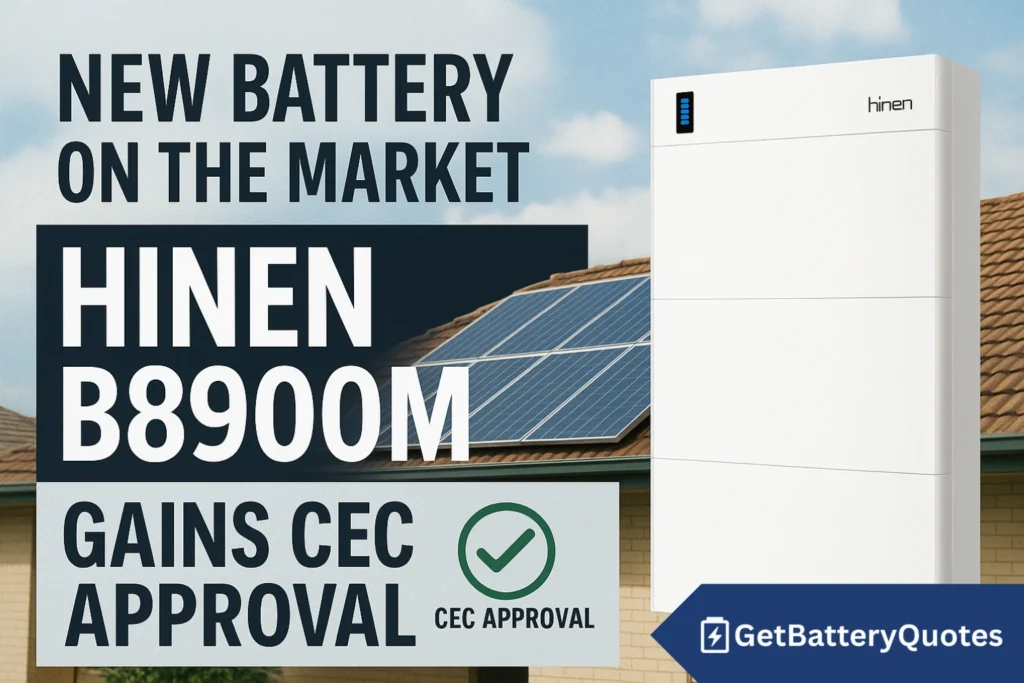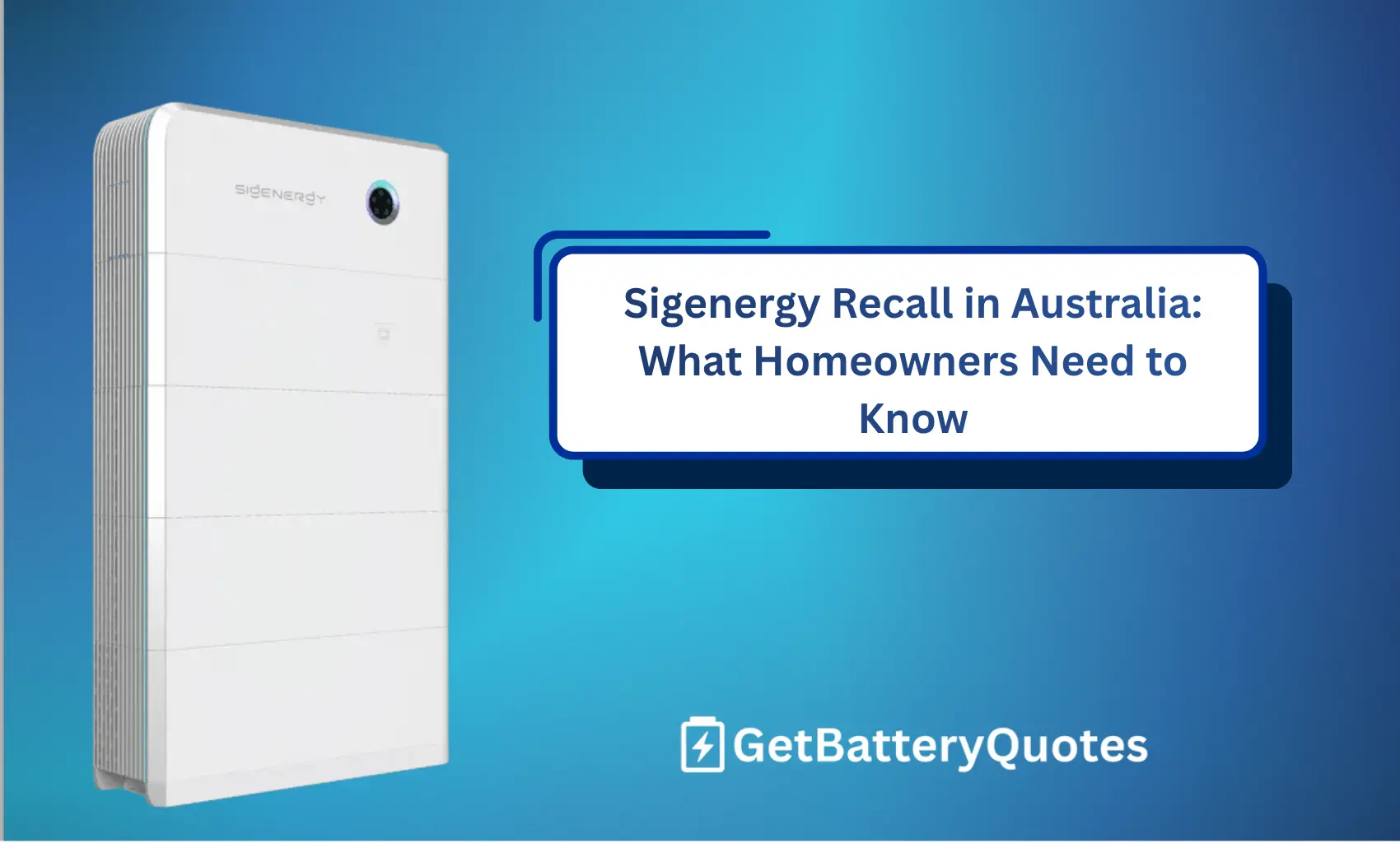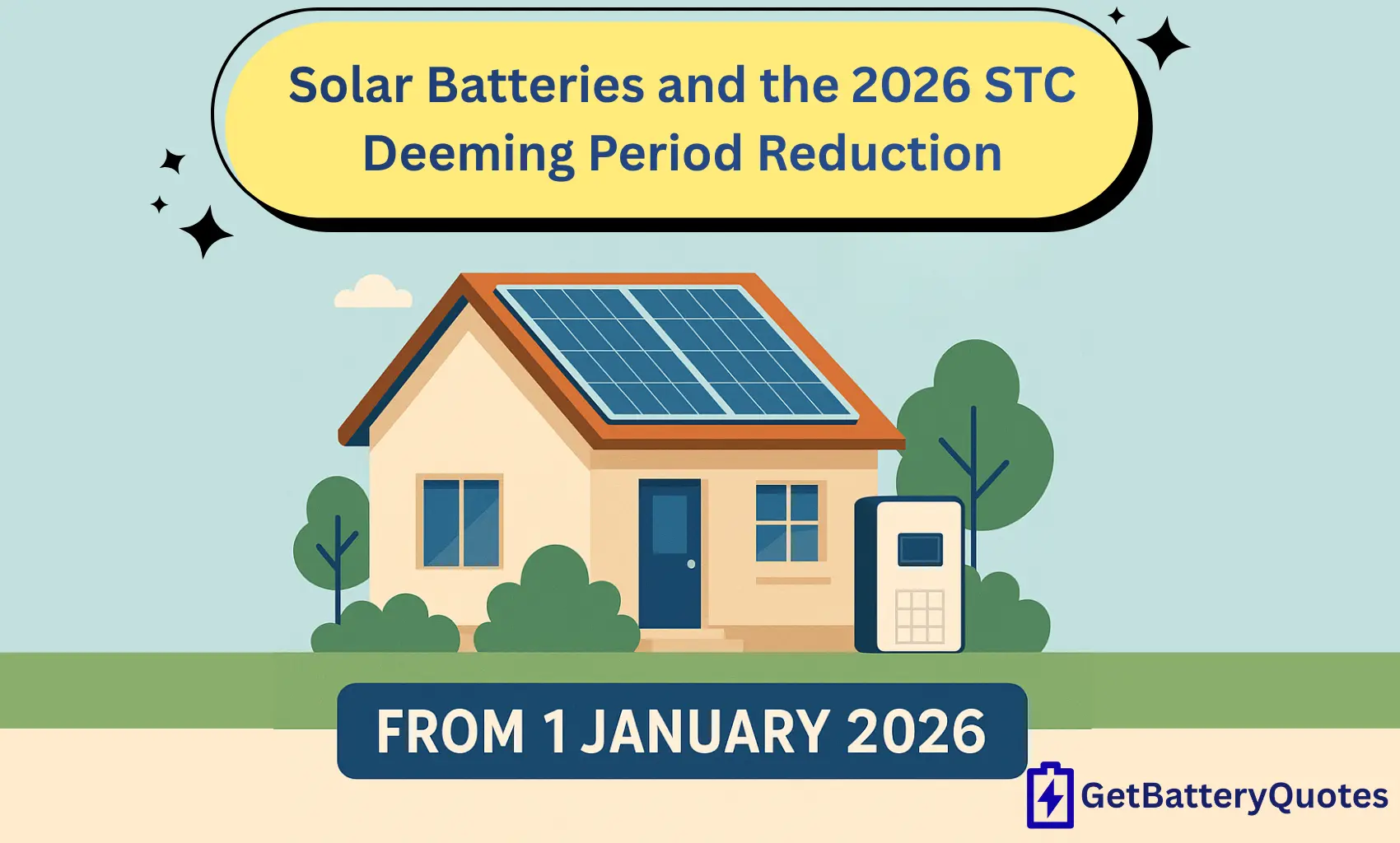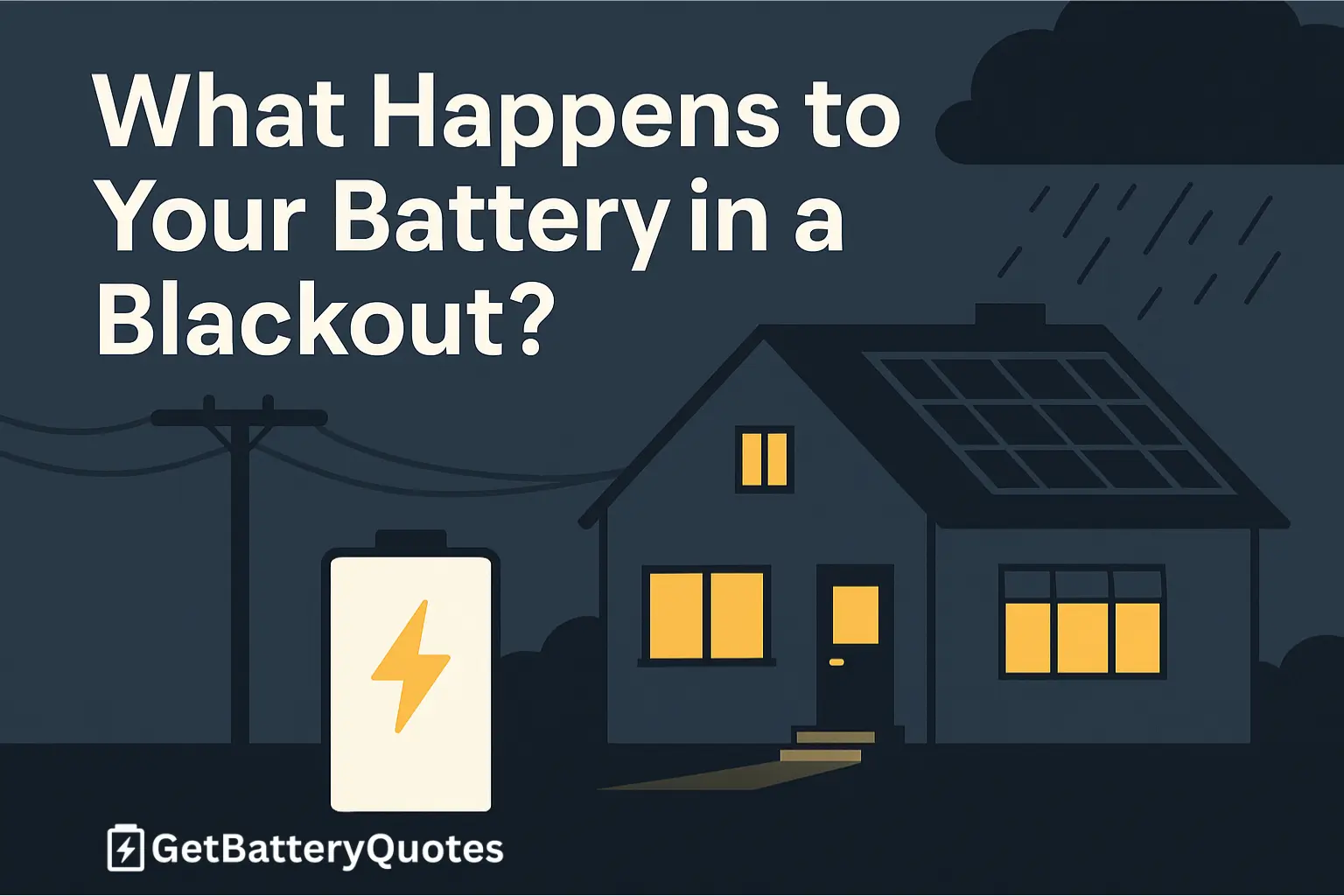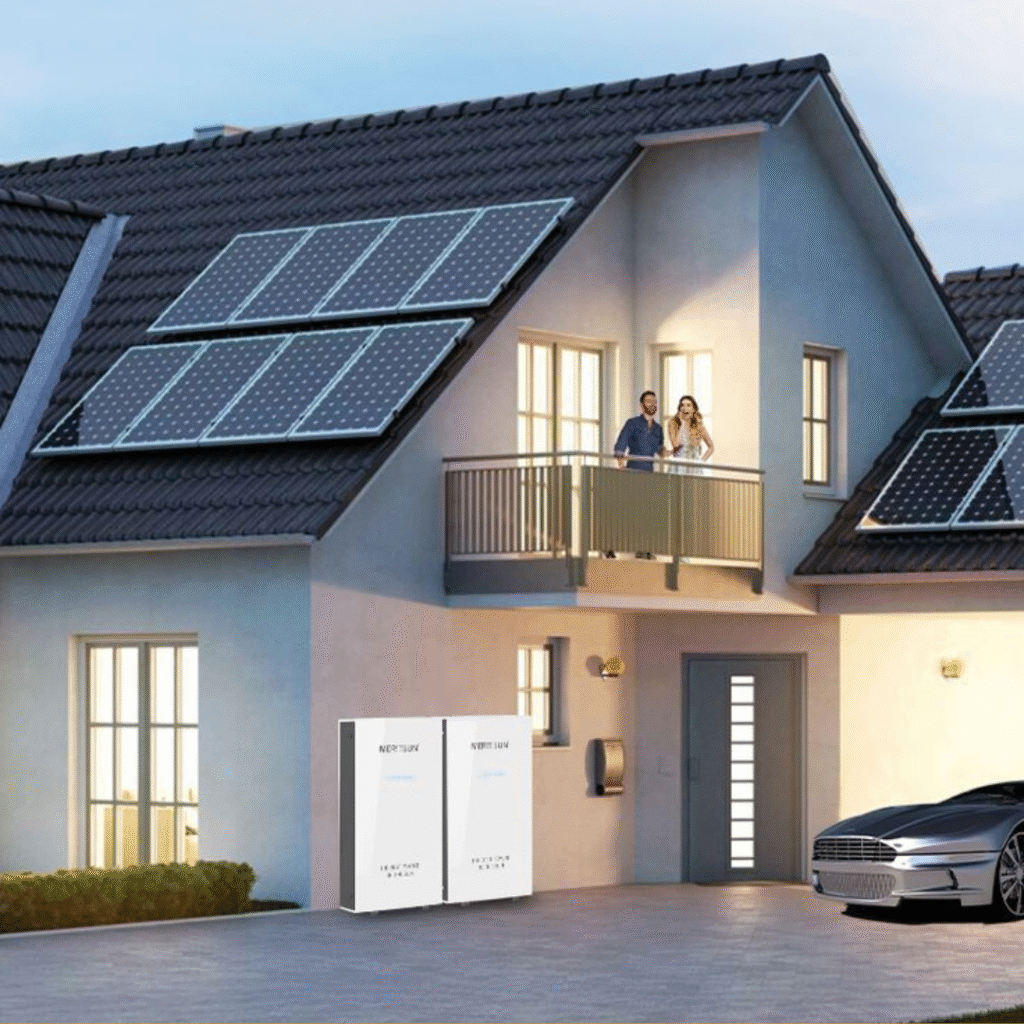In July 2025, the Clean Energy Council (CEC) approved the Hinen B8900M home battery range for use in Australia. This approval means installers can now officially supply and install these models, and homeowners can be confident they meet local safety and compliance standards.
With Australia’s battery market growing rapidly, every new approval adds more choice for households looking to store solar energy and protect against rising power bills.
What’s Changing?
The Hinen B8900M is a lithium iron phosphate (LFP) battery system designed for residential and small commercial use. It comes in several capacity options, ranging from around 8.9 kWh per module up to 26.9 kWh, with stackable expansion possible across clusters.
The system includes modern features such as:
- 100% depth of discharge
- Long cycle life (over 6,000 cycles)
- Safety layers including a built-in DC breaker, intelligent BMS, and fire suppression
- Outdoor rating and an optional low-temperature heating function
👉 Read our full Hinen Battery Review for detailed specs, pros and cons, and performance scoring.
Why CEC Approval Matters
The Clean Energy Council’s product approval list is the benchmark for Australian solar and storage systems. CEC approval confirms that a product has met required standards for:
- Safety – Ensuring the battery can be installed and operated in Australian homes
- Performance compliance – Verifying technical claims and system reliability
- Eligibility for rebates and incentives – CEC-listed products are generally required to access federal and state-based programs
For homeowners, this means the B8900M is now a compliant option, and for installers, it can be legally integrated into new or existing solar systems.
👉 See which other brands are approved and how they compare in our Best Solar Batteries in Australia 2025 guide.
How Does It Fit Into Australia’s Battery Market?
The Hinen B8900M enters a competitive mid-to-budget segment of the Australian market. Established brands like BYD, Sungrow, and Tesla already dominate in terms of installer support and proven performance, but newer brands like Hinen are targeting affordability and modular scalability.
Key points of difference for the B8900M include:
- Scalability: Suitable for both single homes and larger storage needs
- Safety emphasis: More safety features than some entry-level competitors
- New brand presence: While technically promising, Hinen is still relatively unknown to Australian consumers and installers
Who Might Consider the Hinen B8900M?
The newly approved B8900M may suit:
- Households looking for a lower-cost battery entry point
- Projects needing modular scaling beyond 20 kWh
- Installations in cold climates, where heating functions help maintain performance
It may not be the best fit for homeowners prioritizing long-term brand trust, advanced apps, or wide inverter compatibility.
Final Thoughts
CEC approval of the Hinen B8900M battery gives Australian households another choice in the growing energy storage market. While the system brings attractive technical features and scalability, Hinen is still a new name locally and will need to build its reputation over time.
👉 For rebates and eligibility, check our Federal Battery Rebate Guide.
👉 For a deeper breakdown of Hinen’s performance, warranty, pros and cons, see our full Hinen Battery Review.

